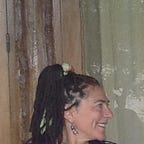Language barrier
With time, I find that the language barrier is becoming a serious obstacle and a source of isolation and loneliness. My profession doesn’t help: writing on a computer all day.
Never before did I experience such a communication wall, except maybe in Japan but I was there for a fortnight only and knew I would soon return to language familiarity. Here, I miss the most basic element to feel at home: language.
I thought I was doing well when I established a routine within the first month in Ankara. I enrolled into a yoga centre, I joined a co-working space and I took a dedicated table in my favourite café (the one mentioned in previous posts).
It was entertaining at first to practice yoga in Turkish. I learned the words for breathing, upper dog and lower dog poses (you can imagine how useful they are outside of the class) and registered the numbers from 1 to 10 (because in yoga we count through breathing). With my established yoga practice, I can anticipate the moves and follow a class, but I miss out on the comments and jokes.
At my co-working space, some members speak fluent english. I can exchange words over lunch in the common kitchen and ask questions about current affairs: the municipal elections coming ahead on 31 March, the practice or non-practice of Ramadan fasting (known as Ramazan here), the sprawling urban development in Ankara, etc…This place has become my main source of learning about the city, and my contact with Turkey outside of my expat circle.
For the rest, I understand NOTHING. I miss events for not being able to read notices (or reading them too late), I can’t follow presentations or talks, not to mention mingling with people over a drink or coffee. I have become death and mute to the world around me and it is now weighing on me.
At least, I can read road signs for which I have Ataturk to thank. As he came into power in 1923, he changed the language from Ottoman to Turkish and forced the adoption of the latin script. Before that, an Arabic-Persian script was used, which only the educated class could read and write. Many Ottoman words were borrowed from these two languages. In an attempt to break with the past, Ataturk imposed the Turkish language spoken by the non-educated mass as the national idiom and created a writing system. Because so many people were illiterate at the time, it was easy to switch to a Latin script to teach to write. This language reform was key in the formation of the modern Turkish identity.
I am now debating whether to invest my energy into seriously learning Turkish, which implies attending an intensive course for six weeks and practicing thereafter. It is such a foreign language that it will take me years to reach a level good enough to interact beyond a basic conversation, and by then it will be time to leave again. Shouldn’t I invest my energy into something else?
Until now, I’ve been messing about with Duolingo, practising daily within the limitation of such platform. I’ve been taught at length to say bread (ekmek) and apple (elma), the two words that keep coming up in the exercises (along with Duolingo’s congratulatory ding bell). In the online platform’s world, they seem to constitute the sole diet of the Turkish people. I can say hello and goodbye, I drink and you eat, but the platform doesn’t explain the grammatical structure of the language, an essential element to make real progress. I suppose we are dealing with a culture clash here: I am European and used to learning grammar before vocabulary (the foundation on which to grow); Duolingo has an American approach to learning languages, which limits itself to registering a few words and common sentences to get by in daily life.
Not learning the language (or trying to) would make me a true expat, someone who is staying at the surface of things, enjoying the easy life without delving in, which is against my idea of experiencing a country. I suppose I’ll have to put my travel urge to rest for a while, stay put and get started with a real course. I am working on my motivation to do so….
